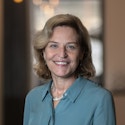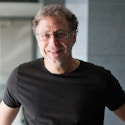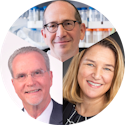- Speakers
-
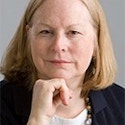 Catherine Lord, Ph.D.
Catherine Lord, Ph.D.George Tarjan Distinguished Professor of Psychiatry and Education, University of California, Los Angeles
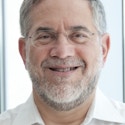 Steven Hyman, M.D.
Steven Hyman, M.D.Core Institute Member, Director of the Stanley Center for Psychiatric Research, Broad Institute of MIT and Harvard
On 26 September 2013, Catherine Lord and Steven Hyman presented conceptual frameworks for autism diagnosis and research, ranging from genetics to symptomatology, as part of the Simons Foundation Autism Research lecture series.
Eric London provided post-lecture commentary, placing the discussion in a clinical context and providing a physician’s perspective.
You can watch a complete video recording of the event above. Use the comments section below to discuss the lecture and pose follow-up questions.
About the Lecture
Tremendous progress has been made in our understanding of autism, with major contributions coming from a variety of research fields, including genetics, neuroscience and psychology. The clinical definition of autism has been revamped with the publication of the fifth edition of the Diagnostic and Statistical Manual of Mental Disorders. Accordingly, our concept of autism is evolving, which in turn affects the future of autism research and the development of interventions.
About the Commentators
Gerald D. Fischbach is chief scientist and fellow of the Simons Foundation.
Eric London is director of the Autism Treatment Laboratory at the New York State Institute for Basic Research in Developmental Disabilities.
About the Speakers
Catherine Lord is the George Tarjan Distinguished Professor of Psychiatry and Education at the Semel Institute of Neuroscience and Human Behavior in the David Geffen School of Medicine at the University of California, Los Angeles.
She is a practicing clinical psychologist whose primary focus is autism and related disorders across the lifespan, from the toddler stage through adulthood. Her research and clinical work have involved the development of diagnostic instruments that describe individual profiles of skills and weaknesses and carrying out longitudinal studies from age 15 months up to 26 years with the goal of identifying protective and risk factors that influence milestones of progress over the years.
She is a member of the National Academy of Medicine and a fellow of the American Association of Arts and Sciences.
Steven Hyman is director of the Stanley Center for Psychiatric Research at the Broad Institute of the Massachusetts Institute of Technology and Harvard University, and is Distinguished Service Professor of stem cell and regenerative biology at Harvard.
From 1996 to 2001, Hyman served as director of the U.S. National Institute of Mental Health, where he emphasized investment in neuroscience and emerging genetic technologies and initiated a series of large practical clinical trials to inform practice. He is editor of the Annual Review of Neuroscience, president-elect of the Society for Neuroscience, founding president of the International Neuroethics Society and a member of the Institute of Medicine of the U.S. National Academies.
